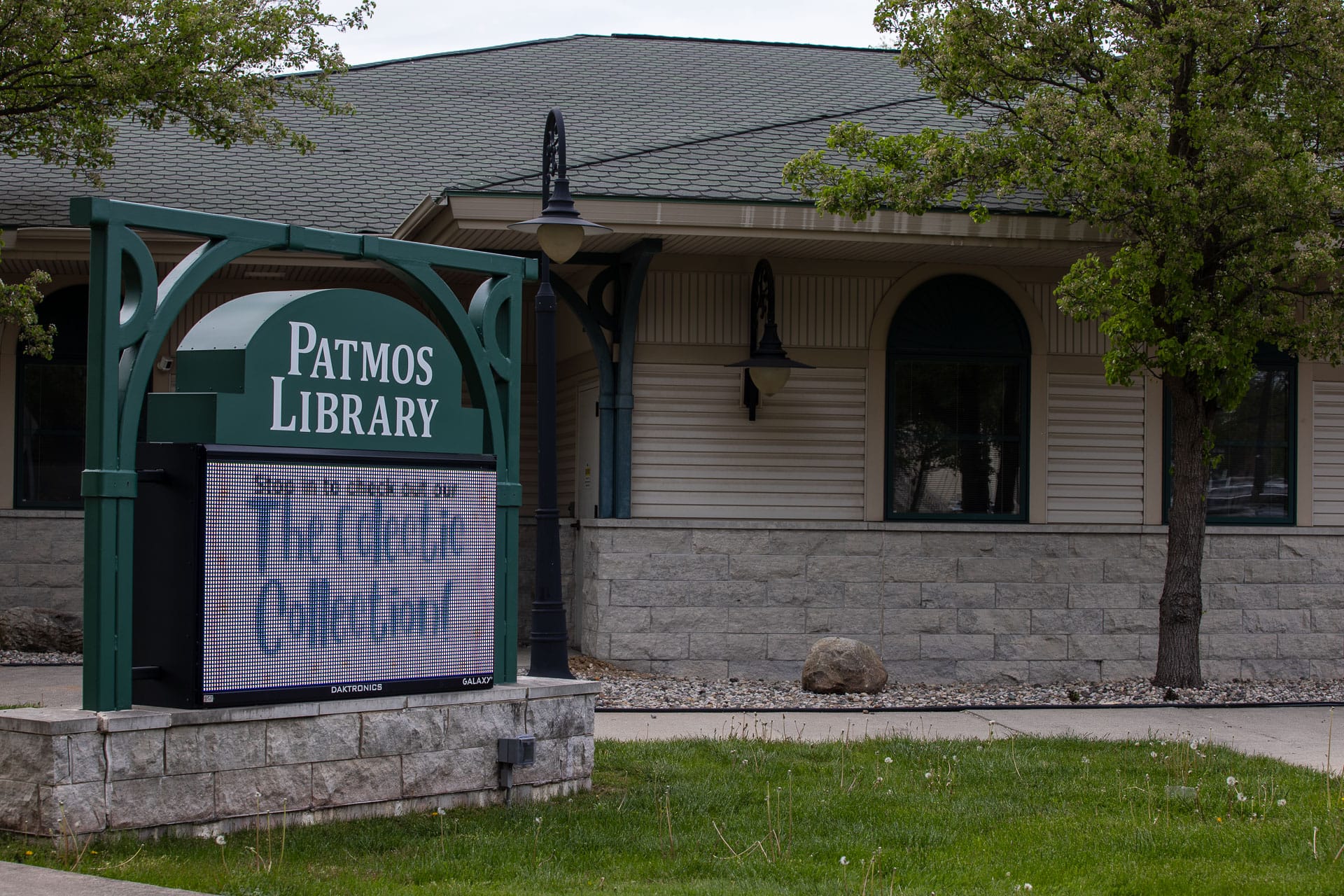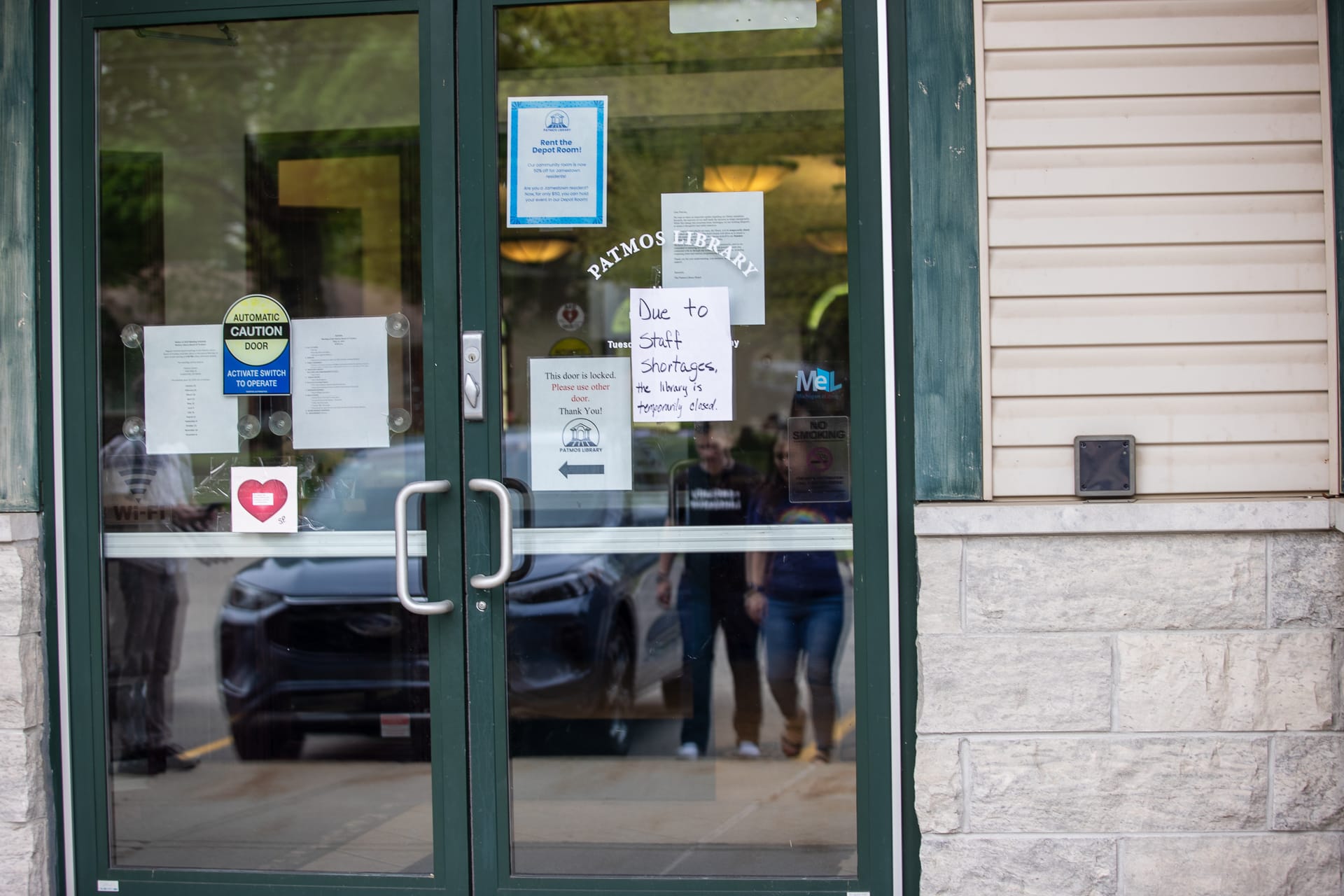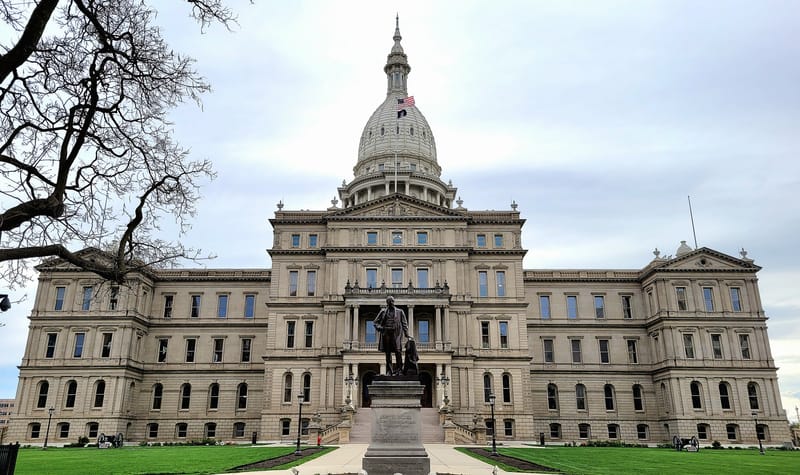Librarians, residents talk book banning after staff walkout forces Patmos closure
Following the temporary shuttering of the doors to Patmos Library earlier this month in Jamestown Township, Ottawa County librarians and residents are reprising conversations on book banning that nearly closed the library three years ago.

JAMESTOWN TWP. — Following the temporary shuttering of the doors to Patmos Library earlier this month in Jamestown Township, Ottawa County librarians and residents are reprising conversations on book banning that nearly closed the library three years ago.
In 2022, the library was in the national spotlight when some conservative residents raised concerns over the availability of LGBTQ-related books. Voters rejected millages contributing to the library’s budget — gutting it by 84% — but Patmos ultimately won back taxpayer support in November 2023.
Since then, the library’s work environment remained divisive, according to five staffers who unexpectedly resigned from the library on May 9.
The library board said through its website it is planning to restore full services as soon as possible and is preparing to launch its Summer Reading Program, although the building remained closed as of May 20.
Of the library’s 67,000 titles, it previously reported that it contained 90 stories including LGBTQ+ themes, one of which is “Gender Queer” by Maia Kobabe. The graphic novel chronicles the author’s experience exploring their sexuality and gender identity. The book was previously located in the library’s adult section, but after community concerns were raised over sexual content, it’s been kept behind the counter.

A rise in calls for book bans
Book banning in the U.S. has seen a significant increase in recent years, particularly in recent years, according to PEN America, driven by conservative backlash against discussions of race, sexuality and gender identity.
National data from the Office of Intellectual Freedom at the American Library Association, or ALA, said the number of content-based objections being higher than average since 2021. Common reasons for challenging titles included LGBTQ+ characters or themes, topics relating to race, equity and social justice, as well as claims of obscenity.
According to a prepared statement to Ottawa News Network by the Loutit District Library’s Banned Books Team, obscenity claims can only be determined by a court of law.
“Unfortunately, this (book banning) impacts both fiction and nonfiction materials, which can result in reduced access to information about topics like puberty or history,” the library said in the statement.
The library’s Banned Books Team was created in 2022 following the spike in book challenges locally and nationally. The group aims to educate patrons on censorship and engage the community through programming and book displays.
The statement added that many censorship attempts are not officially reported because “doing so can pose significant risk to the livelihood and personal safety of library staff.”
In October 2022, the Spring Lake Public Schools Board also voted to remove “Gender Queer” from the high school’s library. Other titles contested locally include “Jarhead,” where a Marine shares his experience in the Gulf War, which many Hudsonville Public School parents felt explicitly portrays the military in a negative light. Another was “Half of a Yellow Sun," which is set during the Nigerian Civil War and was deemed too violent and sexually explicit, according to parents of the same school district.
Stephanie Fast, public relations manager of Hudsonville Public Schools, said there have not been any books challenged or removed from shelves in two years. If objections were to arise, she explained the district’s standard objection process.
“HPS has a concerned parent book review process,” Fast said. “This is available on the district’s website and is also shared digitally and/or as a hard copy with the party who brings an objection about a book. Initial concerns are directed to building principals, who initiate the remaining steps of the process.”
Similar processes are observed by other districts with Ottawa County's Intermediate School District, such as Grand Haven Area Public Schools. Although the district does not have any “banned” titles, the GHAPS School Board clarified its policy in 2020 after parent raised concerns: Parents can monitor books their child has checked out from school libraries, along with restricting certain titles or genres.
Grand Haven Area Public Schools declined ONN's request for comment.

How libraries handle challenges
While schools maintain parental guidance policies and board voting procedures, public libraries have slightly different mechanisms put in place if a book were to be challenged.
Loutit said it has not received any formal challenges. The library’s Collection Development Policy states that if a patron were to object to the “presence, absence or classification” of any library materials, the matter would be given a hearing with the library administration.
“We cannot speak for school libraries, but public libraries do not make decisions in place of parents,” the library said in its statement. “We uphold the right to decide for ourselves and our families, but we do not have the right to decide for others. We encourage all parents to help their child decide what is best to read. Ultimately, when it comes to your own child, nothing can take the place of your own review and evaluation.”
The library added that reference staff are available to answer questions about the content of its books.
Jon Jeffryes, associate dean for Curriculum, Research and User Services at Grand Valley State University’s Libraries, said the freedom to read is at a library’s core.
“Libraries want to provide individuals with lots of options to have the freedom to select for themselves what they read (or choose not to read),” Jeffryes said. “Book bans remove options from individuals.”
Support Our Work
Ottawa News Network is a nonprofit news service dedicated to providing the residents of Ottawa County with trustworthy, community-driven news. ONN treats journalism as a public good — something that enriches lives and empowers Ottawa County’s 300,000-plus residents to stay engaged, make informed decisions, and strengthen local democracy. Please consider giving today.
Some Ottawa County residents, including Kelly Nanninga, of Coopersville, said that keeping certain books off the shelves, specifically in schools, protects children from seeing sexually explicit content or material otherwise “not appropriate” for their age.
“They (certain books) don’t belong in school libraries; they are available in public libraries and online,” Nanninga said. “Ones that have a sexual nature do not belong in our schools.”
Loutit’s Banned Books Team, however, said banning books violates the First Amendment, and the right to read, speak and seek information freely.
“It is powerful to see yourself represented in a story, and just as powerful to learn about people not like you,” the team said in a statement.
— Contact ONN reporter Hailey Hentz at hhentz@ottawanewsnetwork.org.





